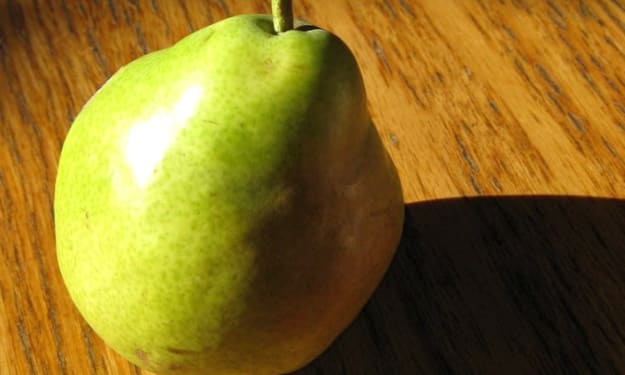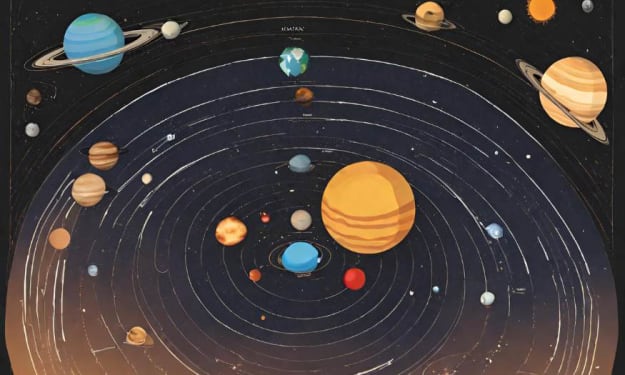How We Can Help the Oceans Even From a Land-locked State
Nine Practical Ways All of Us Can Begin
I’m responsible for the oceans, even though I live in a land-locked state… Why? Every time water runs off my yard into the storm sewer, it eventually ends up in the ocean. The same goes for every time water runs down my sink drain. 94% of Earth’s wildlife is found in the ocean! So, what I do not only affects the water that covers 70% of Earth’s surface, it also affects most of the wildlife on Earth!
ALL humans rely on the seas for our survival—even those of us who live far, far away from any seashore. How? Our lives would not exist without our oceans. Oceans literally produce the air we breathe; over half of Earth’s oxygen—over HALF! The oceans regulate weather patterns; mess with them, and our weather will be messed up. Did you know that 14% of Earth’s protein comes from the ocean? When we think of all the people who rely on the ocean for a food source, we may not realize the many surprising products we use daily that contain ingredients from the sea, such as peanut butter and soy milk. Many essential medicines come from the ocean, as well. Then, there are all the people who make a living from the oceans… Even those who think we’re not financially dependent upon the oceans, sure do rely on the many products that are transported across the seas. Without access to ocean-transported products, prices would skyrocket.
Some may believe that longing to go to the seashore and the wide variety of recreation that oceans offer aren't essential for our physical health; but I would argue with that reasoning. The soothing sounds of the ocean waves and a refreshing warm sea breeze that destress sure are good for our emotional, mental health, and spiritual health—which affect our physical health, sooner or later. Even if we can’t physically be there, simply enjoying a beautiful photo of an ocean scene or listening to the sounds of the sea can have a destressing effect on our bodies.
So, now that I’ve considered some of the many reasons why we SHOULD help care for our oceans; what are some practical ways people like me, living in land-locked states, can do our part to protect the oceans?
1) Be mindful of how what we apply onto our lawns. Contrary to popular belief, it’s not farmers who are the biggest pesticide polluters of the oceans—it’s suburban folk who are obsessed with having perfect-looking lawns. All those products we apply to beautify run off into storm sewer drains and eventually make their way into the ocean. Multiply that by millions of yards doing the same, and you can see why the oceans are in trouble. Farmers are doing it in order to feed the world… But, what is the homeowner’s excuse? Just for appearance’s sake? There’s a big difference. I’ve slowly learned to embrace low-maintenance landscaping ideas. If everybody changes just a little, it can add up to a lot.
2) Be mindful of wasting water. You know we’re taking water for granted when we’re letting the faucet run and run while we’re brushing our teeth, for instance. After relatives returned from serving overseas and told me accounts of how many people don’t have access to clean water in so many lands; it made me stop wasting so much water. We must train our children to do the same. It all starts with being thankful for water. If we view it as being precious, we won’t just let it run down the drain.
3) Be mindful of ocean mementos. I am embarrassed that years ago I bought coral at a souvenir shop on vacation near a seashore; and I would never do such a thing again. Coral reefs are having a hard enough time fighting for their survival, without consumers encouraging further destruction for money-making purposes!
4) Be mindful of litter. There is never, never ever an excuse to litter; whether you’re near or far away from an ocean. Wait until we’re by a proper trash receptacle before we clean out our vehicles. But, we need to go further… We need to leave each area we visit cleaner than we found it. That means in addition to not littering ourselves, we should pick up any litter that we encounter around us—and train our children to do the same. Walking away with the attitude that “I didn’t do that” is not acceptable.
5) Be mindful of reusable vs. disposable. The older generations truly WERE wiser, when it comes to avoiding disposable items. My parents grew up during the Great Depression, and I used to snicker at how they used and reused so many items, thinking it was silly not to go for convenience, instead. I wish they were still around so I could tell them they were right, all along; and I was wrong.
6) Be mindful of making others aware. We are all affected, even when the majority of the water pollution is coming from other countries. There are plenty of videos on the internet of other countries, showing rivers of trash—some even show garbage trucks backing up to streams and rivers and dumping their entire loads of trash directly into the water, with no fear of reprisal. All countries need to be shamed into making and complying with proper trash disposal regulations. All that dumped trash not only damages local waterways, it also flows into the oceans, drifts, and hurts us all—not to mention the harm to wildlife. Although our local lawmakers may have good intentions when they ban straws, for instance; such preventative measures are just a drop in the bucket and do not address the major sources of water pollution. If we’re truly serious about REALLY doing what would make a difference, concessions and penalties against other countries who are refusing to enforce the proper disposal of trash would be an effective way to start. We need to quit worrying so much about being politically correct if we are serious about solving the problem. We can all do our part by sharing such videos and urging the powers that be into action.
There are the many wonders yet to be discovered, contained in the oceans—which have been explored less than our solar system. Did you know only 5% of the ocean’s floor has been mapped in detail? That means 95% is yet unknown! What wonders and betterments await discovery? If we don’t destroy it, first… But, besides benefitting ourselves, we ought to be thankful for our oceans and be grateful for the gift of the seas—and Earth in general.
There are other good habits we can all develop to help Earth in general; and bad habits we can all stop doing that increases our carbon footprint, no matter where we live:
7) Be mindful of where we set our thermostat. It’s simple to put on a sweater or a sweatshirt so we can lower the heat in the winter. Likewise, it’s simple to wear short sleeves so we can raise the temperature before the air conditioner kicks on.
8) Be mindful when replacing lightbulbs. Every time a light bulb burns out is an opportunity to do our part by replacing it with one that’s more energy efficient. One house may not think they are making much of a difference, but when you multiply it by thousands of households, it’s amazing the difference it will make!
9) Be mindful of driving everywhere. It was only after I lived in another country for a year that I realized how much I drive in the USA and how little I walked or rode bikes, compared to those in other countries. Not only will walking more often reduce our carbon footprint, but it also will improve our health!
There is a thought-provoking scripture in the Book of Revelations which most people may not have heard of, which makes God’s strongly-held view on the matter very clear: "But the nations became wrathful, and your own wrath came, and the appointed time came... to bring to ruin those ruining the Earth.” (Revelation 11:18)
About the Creator
Karla Bowen Herman
I've always wanted to be an author, ever since I was a little girl. Time has a way of flying by when you're raising a family. But, I've discovered you're never too old to start! May something I write someday, lift someone's heart.






Comments
There are no comments for this story
Be the first to respond and start the conversation.